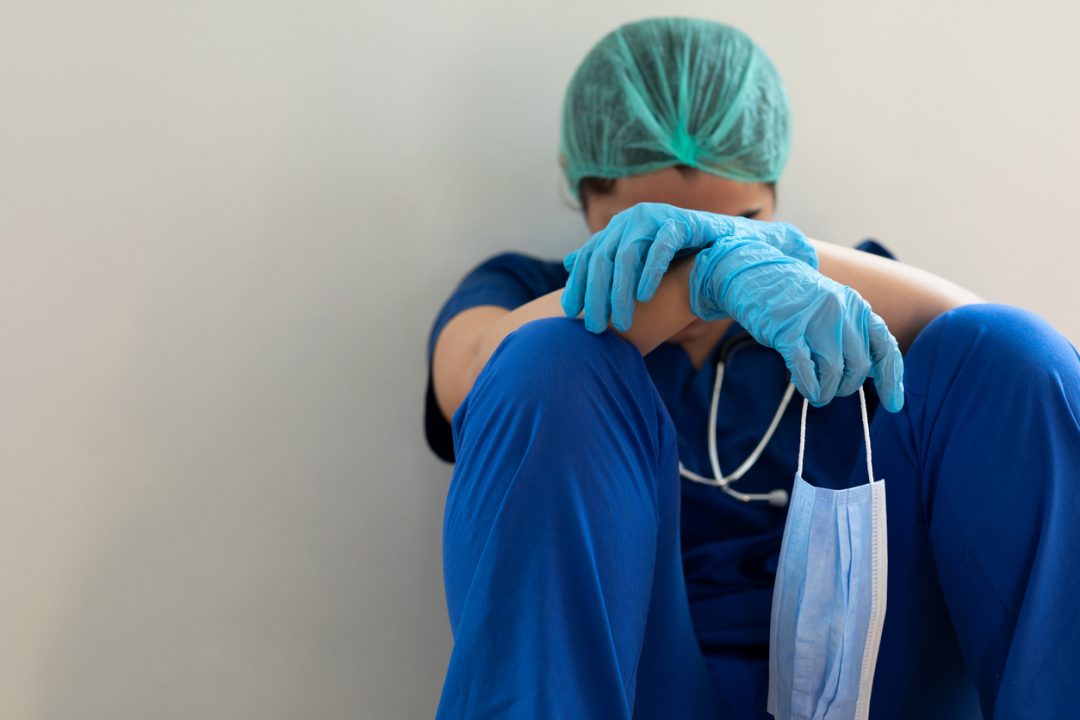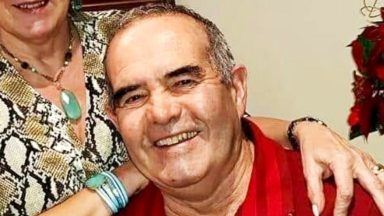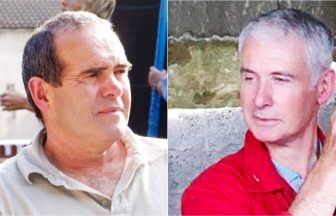A trade union is calling for “immediate action” from NHS Grampian after a survey found staff members have “reached breaking point”.
The Unison survey of those working in every part of the health board found that employees suffered from increasing stress levels and complained about insufficient breaks.
Staffing shortages and feeling unsupported were also among the issues of concern raised by staff with a majority saying their areas are “unsafe” as a result.
The health board acknowledged the findings of the survey and said it was already working to respond to the challenges and support staff the best way it can.
This includes recruiting additional staff from within the UK and overseas and a ‘We Care’ programme.
Unison is the biggest trade union representing NHS workers in the region and its Grampian Health branch representative said employees have “gone beyond the call of duty” during the Covid-19 pandemic and vaccine rollout.
Martin McKay said: “Staff in our local NHS have gone beyond the call of duty over the last two years. But they are now at breaking point.
“Members are telling us they are exhausted, with vacancies taking months to fill, covering for ill colleagues, and not feeling supported.
“The public will be shocked that most now believe their areas are unsafe, and we can’t paper over the cracks anymore.
“As one member put it ‘The only way I see a better working life is to leave and find another job’.”
Unison regional organiser Simon Watson said: “Nobody foresaw the pandemic, and the public is rightly proud of NHS staff who have put their lives on the line to protect us.
“But health workers are not superhuman, and the very least they should expect is real support in the workplace. That is not happening enough.
“The long-term failure to address short staffing is now having critical consequences, but we are not seeing the response that is needed. Staff are asking ‘Where is the leadership?'”
The survey of Unison members employed by NHS Grampian found that three-quarters said their area was “unsafe” due to low staffing levels, and nearly a quarter (24%) said this was the case every day.
Almost every respondent (94%) said their area was short-staffed, and most (59%) said this was the case every day.
More than two-thirds (69%) work extra hours every week, and most (57%) were actively asked to work more.
One-in-ten do extra time every day and almost half (45%) were contacted in their own time to be asked to work extra hours.
A quarter (26%) were contacted during their annual leave and asked to come in.
Meanwhile, less than a third (31%) always finished their shifts on time, and one-in-five (19%) never did.
Only half (52%) were able to take their allocated breaks, and one-in-eight (12%) never got a break during their shifts.
A quarter (34%) were regularly moved (at least once a week) to cover other work areas.
A large majority (81%) felt their well-being was worse than before the Covid pandemic, but even more (89%) said they were stressed (three to five on a scale of one to five) and more than one-in-five (21%) said they were very stressed.
More than a third (37%) have contacted their GP, Occupational Health or their line manager about their stress.
Almost half (45%) did not feel supported by their line manager and most (56%) did not feel listened to when raising concerns.
Three-quarters (74%) wanted more support in the workplace.
The health board said it has put in place staff health and wellbeing support through its We Care programme and has also held staff surveys of its own to “understand where pressures were greatest”.
Tom Power, director of people and culture at NHS Grampian said: “We know staff right across health and social care are understandably feeling the effects of two years of sustained pressure due to the pandemic, coupled with the traditional demands of winter.”
Mr Power said staff had risen to the challenge of infection waves that would have otherwise “overwhelmed” the service. He said NHS Grampian was “hugely grateful for this”.
“I wholeheartedly agree staff have a right to support in their workplace, and we are actively adding to existing structures to meet that need,” he said.
“We also have established mechanisms for staff to raise concerns about safety, or any other issues that matter to them, and these are regularly reviewed and responded to, helping us to maintain standards of patient care and staff experience.
“However, none of this detracts from how staff are currently feeling and the fact that the recovery of our system and the people that it relies upon cannot be achieved overnight.
“We have already established a staff group to explore new solutions and ways of working to help respond to the factors that create the challenges staff are experiencing, but do not underestimate the scale of the challenge.”
Follow STV News on WhatsApp
Scan the QR code on your mobile device for all the latest news from around the country


 iStock
iStock
























